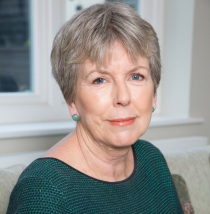They’re among the lowest attaining student groups – so how do we reach them?

By reassessing our expectations, we can start to tackle the impact of social class on the motivation and outcomes of non-EAL, white disadvantaged boys, says Jean Gross…

- by Jean Gross

What can we do for Jason? You’ll recognise him – aka Connor, Liam, Ashley, Jordan. White boys from what politicians like to call the ‘working class’, and on average, the lowest-achieving of any student group, aside from pupils from Gypsy Roma and Traveller backgrounds.
Did you know, for example, that in 2019 only 35% of non-EAL, white disadvantaged boys got a standard pass or better in English and maths, compared to 65% of all pupils? It’s a similar picture in terms of Attainment 8 outcomes.
Two by ten
Don’t those numbers simply indicate low ability? Well, research shows that cognitive ability, while not irrelevant, surprisingly accounts for only just over a third of the parental social class effect on individuals’ educational attainment.
Other factors seem to matter more – such as spoken vocabulary levels and self-efficacy (the belief that you can make a difference to your own life and learning). Teacher-pupil relationships also show up as being important.
So what can we do for Jason? Well, first of all we can go all-out on building a strong relationship with him.
Inclusion expert Daniel Sobel tells the story of one school where a group of boys weren’t doing well in maths and hated the subject. Instead of placing them in a maths intervention programme (thus providing more of what they hated), staff arranged for the boys to go on a five-day camping trip with their maths teachers. Upon returning, their attitudes and progress were transformed.
Simply making time for one-to-one conversations in school can have a similar effect. It might be as simple as asking a pupil how their weekend was, or how their football team has been getting on. Where there are behaviour issues, try the proven ‘two by 10’ strategy – for two minutes each day, 10 days in a row, have a conversation with the student about one of their interests.
If attendance is a problem, try ‘We missed you’ instead of ‘Where were you?’ Make sure the pupil feels ‘seen’ as an individual. I like the idea of asking all pupils in your new Y7 class to fill out a personal profile that includes a photo of themselves, alongside their written responses to prompts that might include ‘What I’m interested in’; ‘What I’m good at’; ‘What I find hard’; and ‘What teachers need to do to help me.’
Challenge expectations
It’s easy to expect more of some children and less of others. At some point, we’ve all heard ourselves saying something like, “The thing with Jason is … he’s bright but doesn’t want to learn … he doesn’t try … he’s just like his brother.’ But expectations can be limiting.
This can occur in schools where growth mindset has been taught to students, but where teachers still talk about and plan for their ‘low ability’ (rather than ‘low-attaining’) pupils and/or groups. What works is challenging our expectations and those that children hold of themselves.
Let’s instead say things like, ‘This particular piece of work is a little below what I think you’re capable of’; ‘That wasn’t the behaviour I expect from a considerate person like you’; ‘Some people may have decided you’re not that good at science, but I’m not interested in that. I think you have it in you to surprise a few people – maybe even yourself.’
Teach self-efficacy
Another useful strategy can be to build students’ self-efficacy by assigning them real responsibilities, and drawing their attention to things they’ve done to help themselves. We can say: ‘You’ve put a lot of hard work into your maths lately – and it’s paying off’; ‘You’ve remembered to edit your writing, and it shows’; ‘You’ve done really well to get yourself to school every day lately – 100% attendance, up from 80% before. How did you do that?’
Pupils need to feel powerful in their own learning. They need to know people believe they can succeed. And they need to feel their teachers like and care about them as individuals. We can all make that happen – for Jason and others like him.
Jean Gross CBE is a psychologist, author and former teacher; her latest book, Reaching the Unseen Children: practical strategies for closing stubborn gaps in disadvantaged groups is available now (£22.99, Routledge). For more details, visit jean-gross.com or follow @JeanGrossCBE











